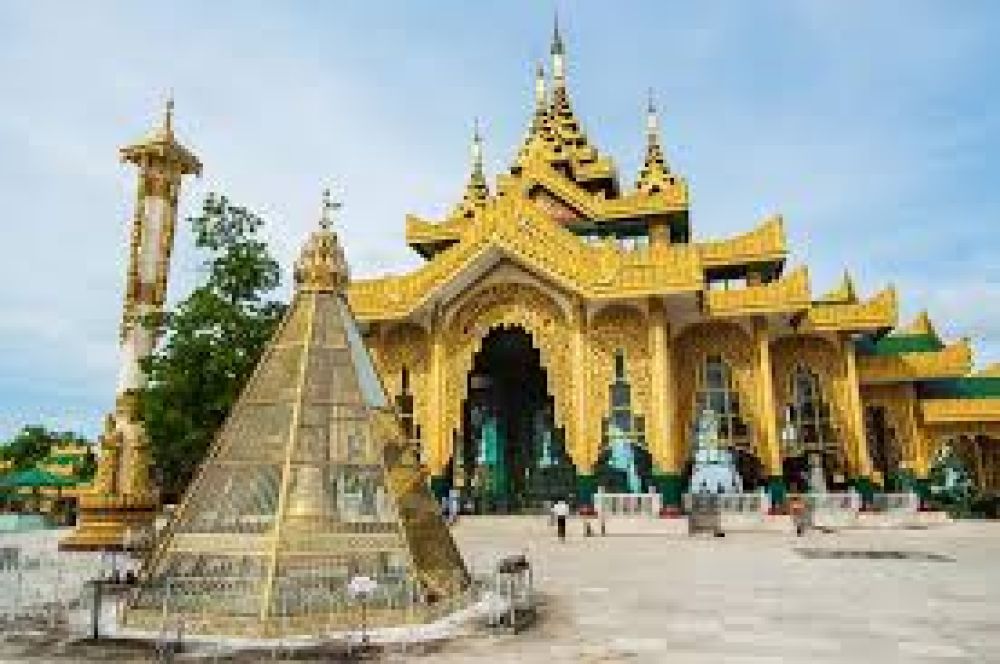

Kyauk Taw Gyi Pagoda, one of the most revered Buddhist sites in Mandalay, Myanmar, is known for its magnificent marble Buddha statue. Carved from a single block of pale green marble, the statue draws devotees and tourists from around the world. Founded during the reign of King Mindon Min in the mid-19th century, the temple holds a significant position both historically and religiously in Myanmar.
The pagoda mirrors a historical intertwining of Theravada Buddhism with Burmese culture, and its construction was intended to merit the king and his subjects. The consecration of the Image took place in 1865, and it has since then been a focal point for worship and pilgrimage in the region.
The beautiful craftsmanship and spiritual ambiance of Kyauk Taw Gyi Pagoda have made it a key attraction in Mandalay. Visitors marvel at the intricate carvings and the serene aura surrounding the grand Buddha image. Surrounded by a well-kept garden and smaller shrines, tourists can indulge in the peaceful atmosphere and gain insight into Burmese religious practices.
Over the years, the pagoda has seen an influx of tourists interested in Burma's unique blend of culture and devotion. The compound's pavilions and prayer halls serve as nodes of religious activity, granting a glimpse into Buddhist traditions and festivals.
In recent years, tourism in Mandalay has gravitated towards more sustainable and responsible practices. There is a growing emphasis on cultural sensitivity and supporting local communities. Tourists are encouraged to engage with local guides, partake in community-run initiatives, and attend traditional events that allow for authentic cultural exchange.
The digital era has transformed the way travelers experience destinations like Kyauk Taw Gyi Pagoda. The increased use of social media platforms for sharing experiences and reviews has put the spotlight on lesser-known attractions, contributing to a more dispersed and balanced form of tourism that benefits various sectors of society.
Visitor experiences have also evolved with a greater focus on immersive activities, such as meditation retreats and religious studies, allowing visitors to go beyond mere sightseeing. The interaction between the global and the local, through tourism, continues to foster both the preservation and the evolution of Mandalay's heritage and spiritual life.